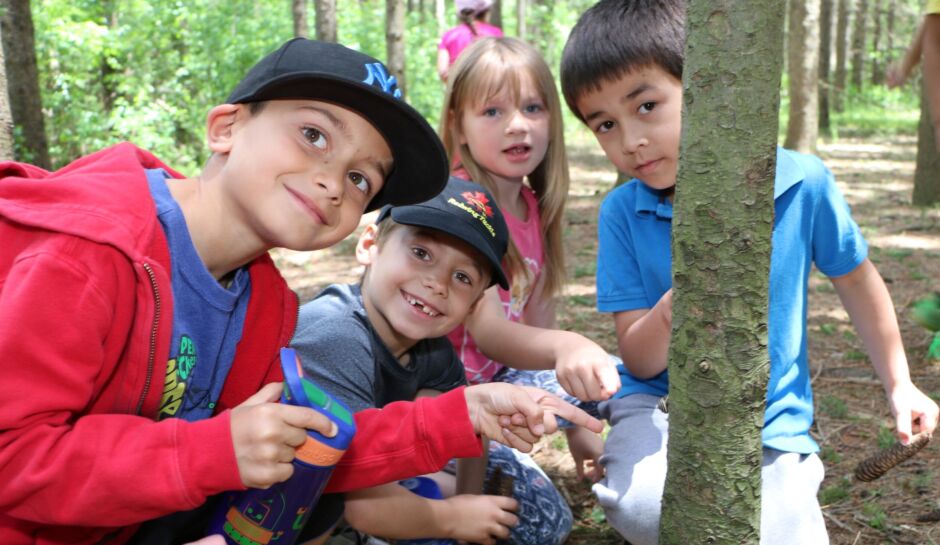Fanshawe Outdoor Education Centre: Programs for Kindergarten and Elementary Students
These environmental educational programs are available for Kindergarten and elementary students at Fanshawe Conservation Area. All programs are a half day unless specified otherwise. All programs meet curriculum requirements within Health and Physical Education: Active Living.
Program Fees
Unless noted otherwise in the program description:
- $8/student/half day
- $16/student/full day
- $136 minimum charge/half day for groups with fewer than 16 students
- No charge for teachers or volunteers
Program Length
- All programs are 1.5 hours
- We have limited availability for Spring 2024. As we aim to accommodate as many requests as possible, we might ask to add you to a waitlist while we confirm availability. The morning time slot for all programs is 10:00 am – 11:30 am, and the afternoon time slot is from 12:00 pm – 1:30 pm. This helps us coordinate the large demand for programming and adhere to firm bus schedules.
- If you choose to combine two programs to create a full day experience, we will secure an indoor or outdoor space for you to eat lunch.

Quick View: Elementary Outdoor Education Programs Listed by Grade
| K | Grade 1 | Grade 2 | Grade 3 | Grade 4 | Grade 5 | Grade 6 | Grade 7 | Grade 8 |
|---|---|---|---|---|---|---|---|---|
| Sensory Nature Hike | Christmas for the Animals | Flap and Map | Flap and Map | Watery World | Survival Game | Survival Game | Survival Game | Survival Game |
| Christmas for the Animals | Winter for the Animals | Watery World | Watery World | Pond, Field, and Forest | Environmental Games | Environmental Games | Climate Change: A Hot Issue | Climate Change: A Hot Issue |
| Winter for the Animals | Fabulous Fall | Forest Free Play | Plant Studies | Survival Game | Beginner Map and Compass Orienteering | Beginner Map and Compass Orienteering | Climate Change Helpers | Climate Change Helpers |
| Fabulous Fall | Spring Sensations | Get the Dirt on Soil | Environmental Games | Climate Change: A Hot Issue | Climate Change: A Hot Issue | Biodiversity 911 | Intermediate Map and Compass Orienteering | |
| Spring Sensations | Flap and Map | Beginner Map and Compass Orienteering | Climate Change Helpers | Interactions and Wildlife Communities | The Amazing Race: GPS Style | |||
| Forest Free Play | Forest Free Play | Alien Invaders | Intermediate Map and Compass Orienteering | |||||
| Biodiversity 911 | The Amazing Race: GPS Style | |||||||
| Interactions and Wildlife Communities |

